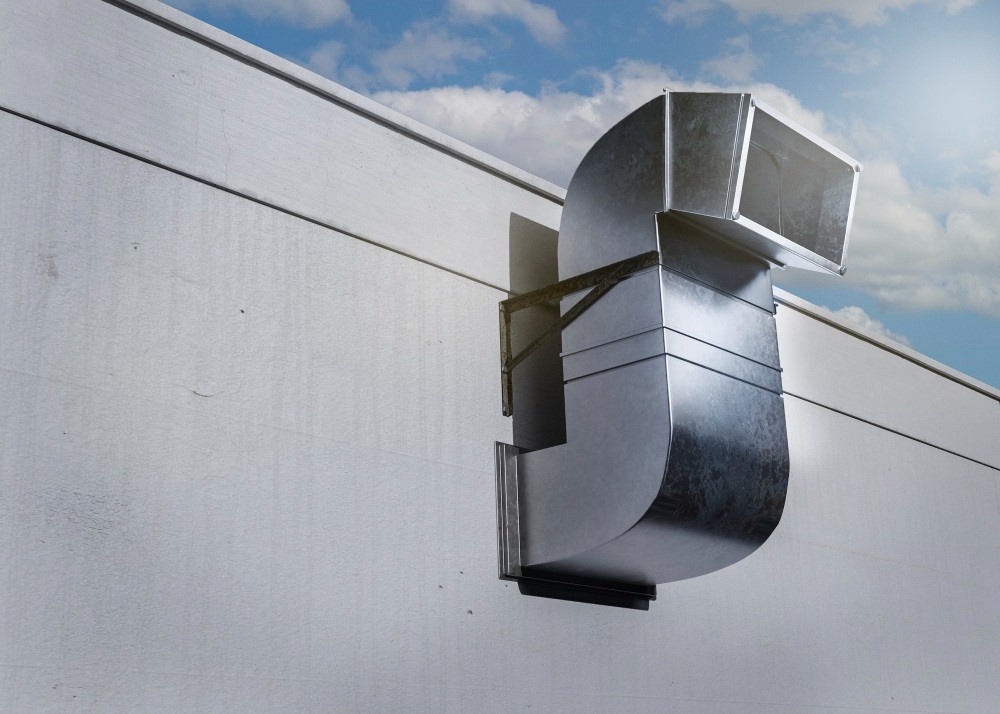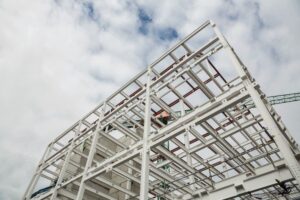
What is The Role of Factory Design in Optimizing Solar Panel Production?
As India embraces a greener, more sustainable future, the demand for solar energy has surged, placing immense pressure on factories to produce high-quality solar panels efficiently and affordably.
One often-overlooked factor in optimizing solar panel production is the design of the factory itself – The layout, workflow, and specific design elements of a factory. It can significantly influence the quality, speed, and cost-effectiveness of solar panel manufacturing.
In this article, we’ll study the role of factory design in solar panel production, exploring how careful planning and thoughtful layout can lead to better products, lower costs, and a more productive workforce.
Efficient Factory Layout
An efficient factory layout is the backbone of optimized solar panel production. The physical arrangement of equipment, workstations, and pathways can greatly affect productivity and product quality.
By arranging equipment in a logical sequence that minimizes material handling, factories can reduce production time and errors.
For example, placing raw material storage close to initial processing stations and ensuring smooth movement toward assembly can reduce the time and energy spent on unnecessary transportation.
In the context of Indian factories, where space can be limited and cost is a critical factor, an optimized layout becomes even more important. A well-thought-out design can save both floor space and time, increasing the factory’s capacity without the need for additional resources.
Workflow Optimization
Workflow optimization focuses on creating a seamless production process where each step flows into the next without interruptions.
In solar panel production, bottlenecks can lead to delays, increased labor costs, and even product quality issues.
A common bottleneck in solar panel manufacturing is the assembly of solar cells, which requires precision and consistency. By ensuring that assembly stations are organized and sufficiently staffed, and by integrating automated systems where possible, factories can reduce downtime and keep the production line moving smoothly.
Implementing lean manufacturing principles, such as Just-in-Time (JIT) inventory, can also reduce delays. JIT focuses on producing what is needed, when it’s needed, minimizing excess inventory that can take up valuable space and resources.
This strategy is particularly beneficial for Indian factories that need to balance productivity with cost constraints.
Lighting and Ventilation – Enhancing Efficiency and Safety
Good lighting and ventilation are essential for the productivity and safety of workers, especially in solar panel factories, where precise assembly and quality control are crucial.
Proper lighting improves visibility, helping workers spot defects more easily during inspections and ensuring that every component is assembled accurately.
LED lighting, in particular, is an energy-efficient option for factory settings, reducing costs over time and aligning with the environmental goals of solar energy production.
Ventilation is also important in factories where dust and fumes can impact both workers’ health and product quality. Poor ventilation can lead to contaminants that damage sensitive components.
By installing ventilation systems that control airflow and filter out contaminants, factories can maintain a clean environment, which is critical for producing reliable solar panels.
Automation – Enhancing Consistency and Reducing Labor Costs
As solar panel demand grows, automation is becoming essential in maintaining consistency and cost-effectiveness. Automated systems can handle repetitive tasks with high precision, such as cell placement, soldering, and quality inspections.
In Indian factories, where labor costs are a significant consideration, automation can be an effective solution for reducing reliance on manual labor for repetitive tasks. Although the initial investment in automation technology can be high, it often pays off in the long run by increasing throughput and reducing errors.
Automating critical tasks like material handling, cell alignment, and lamination can not only speed up production but also ensure that panels are made to consistent standards. This is essential in solar manufacturing, where even a small error can lead to performance issues down the line.
Quality Control Stations
For solar panels to perform optimally, quality control is essential at every stage of production. Incorporating dedicated quality control stations within the factory layout allows for consistent testing and inspection throughout the process.
These stations can be strategically placed after key production steps, such as cell assembly and lamination, to catch defects before they progress through the line. By identifying issues early, factories can avoid costly rework and ensure that only high-quality panels reach the end of the production line.
For Indian manufacturers, investing in automated quality control systems that use image recognition and machine learning can further improve accuracy and speed, helping to meet international quality standards.
Material Flow Management – Reducing Waste and Delays
Efficient material flow management is important for solar panel factories, where any delay in material availability can disrupt the production process. Designing pathways that allow materials to flow smoothly from storage to production reduces the risk of stockouts and ensures that production can continue without interruptions.
Many factories benefit from a U-shaped production line layout, which allows materials to enter and exit from a single area. This design minimizes handling and transportation within the factory, reducing the risk of damage to sensitive materials like solar cells.
In India, where factories often face tight budgets and space constraints, optimizing material flow can make a huge difference. Reducing waste and ensuring a steady supply of materials helps keep costs low and productivity high.
Sustainability in Factory Design – Aligning with Green Goals
Sustainability is at the core of solar energy, and sustainable factory design plays a key role in aligning production practices with environmental goals. Factories can incorporate green features such as solar panels for on-site energy generation, rainwater harvesting systems, and energy-efficient lighting to reduce their carbon footprint.
By integrating sustainable practices in factory design, manufacturers can reduce energy costs and attract clients who value eco-friendly operations.
In India, where environmental awareness is on the rise, sustainable factory design is increasingly seen as a competitive advantage.
Adaptable Spaces – Planning for Future Growth
With the solar industry evolving rapidly, designing adaptable factory spaces can provide flexibility for future growth. By using modular equipment and movable partitions, factories can easily reconfigure their layouts to accommodate new production lines or technology upgrades.
Adaptable spaces are especially valuable for Indian factories, which may need to scale up production quickly in response to increasing solar panel demand. Planning for flexibility from the start can save time and money when expansion becomes necessary.
Conclusion
The design of a solar panel factory is a powerful tool in optimizing production efficiency, quality, and cost-effectiveness. By focusing on factors like layout, workflow, automation, and sustainability, manufacturers can improve productivity and deliver high-quality solar panels to meet India’s growing energy needs.
An efficient factory design not only enhances production but also contributes to a safer, more comfortable work environment, creating benefits for both employees and the business.
Investing in the right factory design now can pave the way for long-term success and a strong presence in the competitive solar market.
For expert guidance in designing your solar panel factory, reach out to VMS Consultants today.
Let’s work together to make your solar manufacturing facility a model of efficiency and sustainability!







